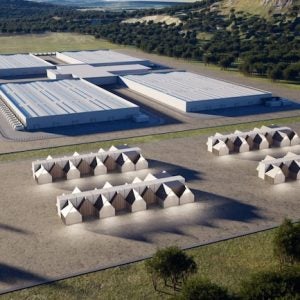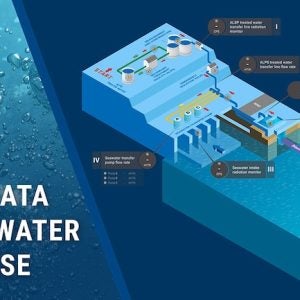
Italian Deputy Premier and Infrastructure Minister Matteo Salvini has opposed proposals for a public investment of €200m ($219m) in France-based nuclear start-up newcleo. This came after Environment and Energy Minister Gilberto Pichetto Fratin and Enterprise Minister Adolfo Urso issued a statement declaring concrete support for strengthening of the national industrial supply chain for innovative nuclear energy and suggested the possibility of state investment in innovative nuclear technologies “with particular attention to the projects promoted by newcleo”.
“Why should we put money in the private sector when there is a public trust”, Salvini said, referring to the NewCo nuclear company recently established by Enel, Ansaldo Energia and Leonardo for the study of small nuclear reactors. The state, through the Ministry of Economy, is the largest shareholder of Enel (23.6%) and Leonardo (30.2%), and Italy’s Development Bank Cassa Depositi e Prestiti holds 88% of Ansaldo Energia.
With an investment of €200m, Italy would become a major investor in newcleo, which, since it was set up 2021, has raised a total of over €537m from institutional and individual investors and has seen an increasing number of European players joining its growing funding base – which to date counts over 700 shareholders.
Since its establishment, newcleo has been very active in fundraising and signing partnership and collaboration agreements. Its business now counts over 90 partnerships, and more than 1,000 employees based in 19 locations across France, Italy, the UK, Switzerland, and Slovakia, including three manufacturing facilities.
Newcleo is developing a LFR-AS-200 small modular lead-cooled fast reactor, which is currently in the conceptual design stage. The company, launched in London in 2021, relocated its headquarters to Paris in October 2024 reflecting its “unwavering focus on growing its European presence and delivering its ambitious timelines and strategic projects”. These include development of a precursor reactor in Italy by 2026; construction of a prototype reactor in France by 2031; and delivery of commercial reactors starting from 2033. The final investment decision for the first commercial power plant is expected around 2029.
Another newcleo project is the establishment of a mixed oxide (MOX) manufacturing plant in France by 2030. In June 2022, the company announced it had contracted France’s Orano for feasibility studies on the establishment of a MOX production plant. In December 2024, newcleo submitted its Safety Option File to France’s nuclear safety regulator for its fuel assembly testing facility.
In March, newcleo signed a memorandum of understanding (MOU) with Italy-based iron and steel company Danieli & C Officine Meccaniche to explore the integration of newcleo’s LFRs with Danieli’s steelmaking technology. The companies will focus on developing “potential integrated solutions where newcleo’s LFRs provide both the electricity and high-temperature heat required to feed some of the Danieli Technologies processes for green steel production.
Newcleo said the future collaboration with Danieli adds to the partnerships newcleo has established with other Italian companies, including Fincantieri for naval propulsion, Maire for green chemistry, and Saipem for offshore nuclear applications.
Despite its rapid business expansion, newcleo’s technological progress is less impressive. While the newcleo website includes a mock-up of the LFR reactor, it provides very little technical information about the reactor design. Currently, the only operating liquid metal-cooled fast reactors are in Russia, using sodium as the coolant. Russia is also constructing the world’s first ever lead-cooled SMR (Brest-OD-300). This reactor is based on decades of complex research and development supported by the entire Russian nuclear industry. It is due to begin operation in 2029. By contrast, newcleo’s technologies remain in the very early conceptual design stage.






